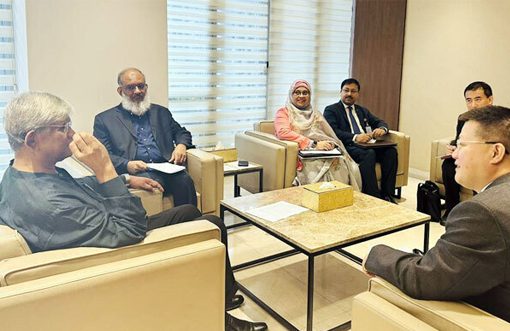Bangladesh faces shortage of waste cotton and textile scraps

Textile millers of Bangladesh are facing a shortage of waste cotton and textile scraps since a major portion is exported abroad due to higher demand for recycled yarns and fabrics worldwide, media reported.
As Bangladesh is the second-largest apparel producer in the world, there is huge volume of cotton textile scraps.
According to the media report, most of these wastes are usually dumped into a landfill, burned, exported, or recycled into low-quality fabrics.
This means the country misses the opportunity to produce recycled yarn from the bi-products with a view to manufacturing the apparel products whose demand is rocketing globally.
Owing to fast fashion — the term used to describe clothing designs that move quickly from the catwalk to stores to take advantage of trends — and cheaper clothing items, cotton consumption has gone up.
Higher cotton farming is hampering the environment whereas the manufacturing of apparel involves more groundwater, especially during washing and dyeing.
So, many clothing retailers and brands such as H&M prefer the reuse and recycling of garments to avoid environmental damage.
But a section of local traders in Bangladesh feels encouraged to export waste cotton and fabrics than sell them in the local market because of the price factor, said millers.
The shipments of waste cotton and scrap rose 49.67% year-on-year to $153.38 million in the July-December of the current financial year, higher from $102.48 million of the same period of the last fiscal year.
This forces millers to buy recycled yarns from international markets. This means local manufacturers are paying more for the imported goods that are already available locally.
In some cases, imported recycled yarns are made from the wastes and scrap fabrics exported from Bangladesh, said industry people.
In 2019, Bangladesh produced approximately 577,000 tonnes of waste just from the ready-made garments and fabrics mills of which almost half was 100% pure cotton waste, media reported citing the Circular Fashion Partnership project led by Global Fashion Agenda, with partners Reverse Resources and the Bangladesh Garment Manufacturers and Exporters Association (BGMEA).
On the other hand, Bangladesh heavily relies on the import of textile fibre.
The country imported 1.63 million tonnes of staple cotton fibre in 2019 with a value estimated to be $3.5 billion.
And if the 100% cotton waste is recycled within Bangladesh, imports could decrease by around 15%, therefore saving $500 million that would have been spent on cotton imports, said the Circular Fashion Partnership.
Cotton imports were more than $3 billion in 2021.





Comment here